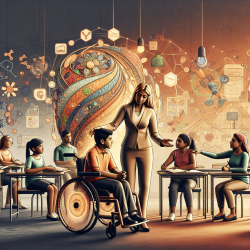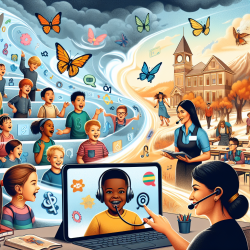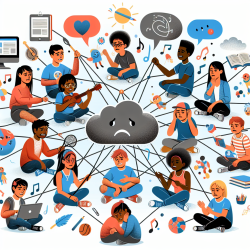Empowering Educators: Enhancing Support for Pediatric Brain Tumor Survivors

As educators, we strive to support every student in our care, especially those facing significant challenges. Pediatric brain tumor (PBT) survivors are one such group that often struggles with academic performance due to various late effects of their condition and treatment. The recent research article "Educational Pain Points for Pediatric Brain Tumor Survivors: Review of Risks and Remedies" provides valuable insights into the obstacles these students face and offers strategies for improving their educational outcomes. Let's explore how we can use these findings to better support PBT survivors in our classrooms.
Understanding the Challenges
The research identifies several key pain points that PBT survivors commonly experience:
- Neurocognitive Difficulties: These include deficits in attention, working memory, and processing speed, which can significantly impact learning and academic performance.
- School Absences: Frequent absences due to medical appointments and illness can lead to gaps in learning and social isolation.
- Psychosocial Challenges: PBT survivors often face anxiety, depression, and social competence issues, which can further hinder their academic success.
- Communication Gaps: There are often breakdowns in communication between parents, educators, and medical teams, leading to inadequate support for the student.
- Physical Challenges: Issues such as mobility impairments, hearing loss, and vision problems can affect a student's ability to participate fully in school activities.
Implementing Effective Interventions
To address these challenges, the research suggests several strategies:
- Neurocognitive Support: Incorporate cognitive training programs that focus on improving attention, memory, and processing speed. These can be delivered through online platforms, making them accessible even during absences.
- School Engagement: Develop individualized education plans (IEPs) that accommodate frequent absences and provide opportunities for social interaction. Encourage participation in extracurricular activities to foster a sense of belonging.
- Psychosocial Interventions: Provide access to school counselors and psychologists who can address anxiety and depression. Peer support groups can also help reduce feelings of isolation.
- Improving Communication: Establish regular communication channels between parents, teachers, and medical professionals. This ensures everyone is informed about the student's needs and progress.
- Physical Accommodations: Ensure that the school environment is accessible and that necessary aids (e.g., hearing devices, vision aids) are available. Adapt classroom activities to accommodate physical limitations.
Encouraging Further Research
While the strategies mentioned above are a good starting point, continued research is essential to refine and develop more effective interventions. Educators and healthcare providers should collaborate on studies that evaluate the long-term impact of various support measures on educational outcomes for PBT survivors.To read the original research paper, please follow this link:
Educational Pain Points for Pediatric Brain Tumor Survivors: Review of Risks and Remedies.By staying informed and proactive, we can make a significant difference in the lives of pediatric brain tumor survivors, helping them overcome educational barriers and achieve their full potential.
Citation: Stavinoha, P. L., Trinh-Wong, T., Rodriguez, L. N., Stewart, C. M., Frost, K., & Moody, K. (2021). Educational Pain Points for Pediatric Brain Tumor Survivors: Review of Risks and Remedies. Children (Basel), 8(12), 1125. https://doi.org/10.3390/children8121125










